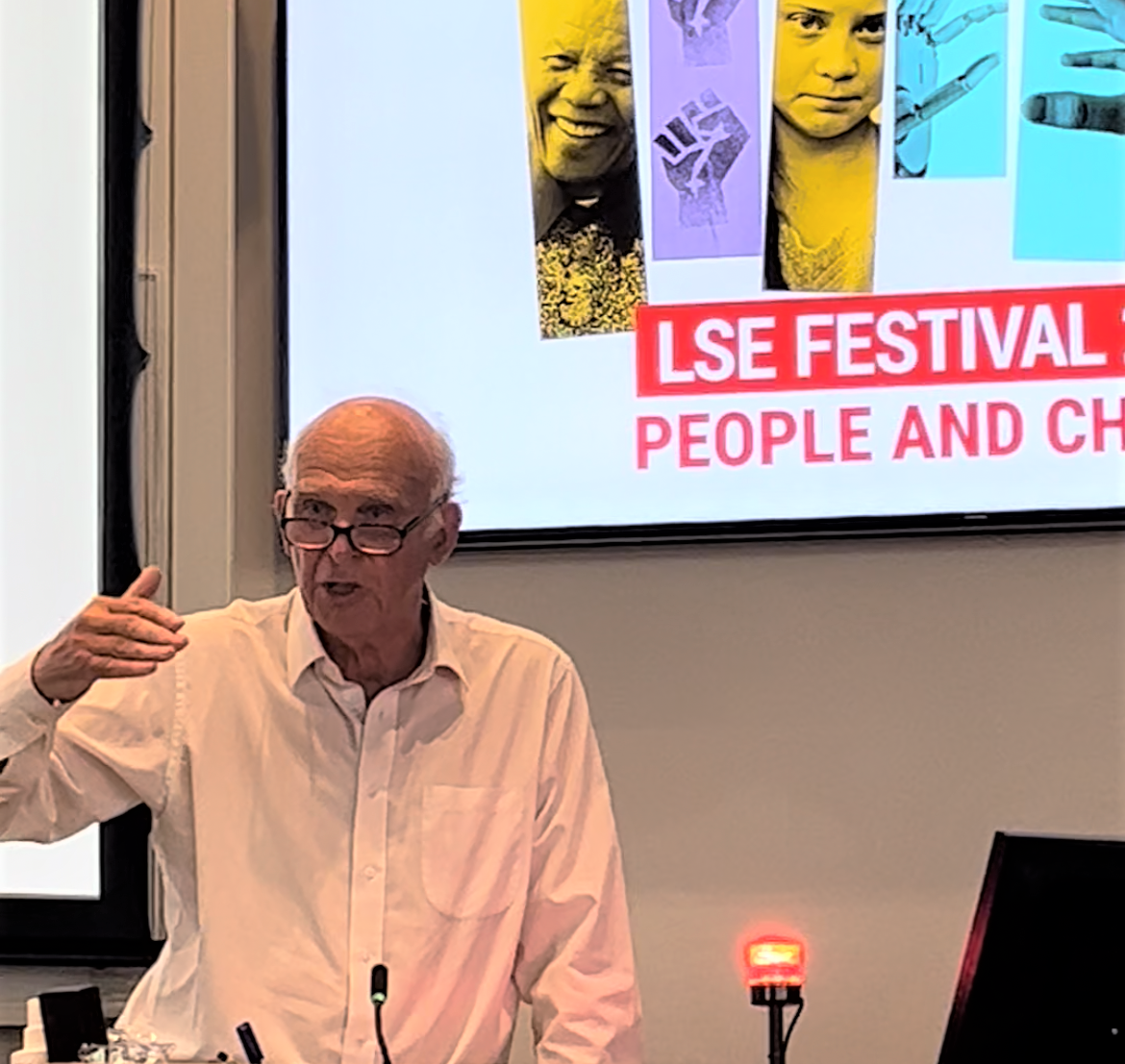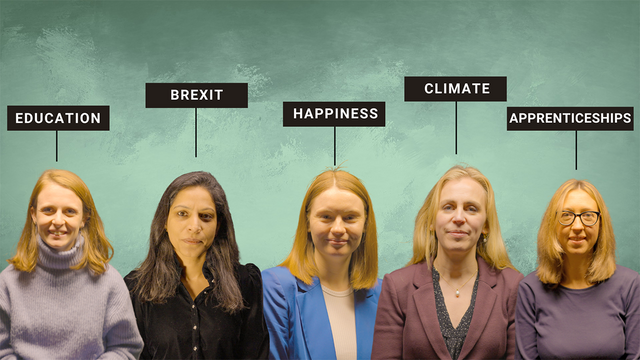Economics continues to be a discipline dominated by men. Yet trailblazing female economists are working to change that. Myung Jin explains why it is important to improve diversity and equality within the field.
Economics is the study of how people, firms and governments make choices, making it a crucial discipline in shaping the policies that govern our societies, and a form of knowledge that impacts all our lives in multiple ways.
Yet in 2018, women represented just 26 per cent of academic economists in the UK according to the Royal Economic Society, and only 8 per cent of academic posts were held by women from ethnic minority backgrounds. This shortage is not unique to Britain, it is a global issue. In 2020, the global share of female chief economists in banks was only 9 per cent. Only two of the 92 Nobel laureates in economic sciences have been women. Economics has a serious diversity and gender inequality problem.
A new video to mark International Women’s Day seeks to highlight the research of female economists and its impact and value. In the film, economists from the Centre for Economic Performance (CEP) talk about why they chose economics, their research, and its importance to our society. Economics intersects many disciplines and this 5-minute video shows a broad range of research – from Brexit to climate change, happiness to working life.
A growing influence on policy
Combating climate change is at the heart of Anna Valero‘s research. As deputy director of the Programme on Innovation and Diffusion (POID) she works on how the government can encourage firms to develop or adopt clean technologies that will help us reach net zero. She is involved in identifying wind and ocean energy technologies as the renewable energy sources that could be most effective in contributing to sustainable growth. Dr Valero’s work was recently included in key government documents and speeches, showing how economic research feeds into policy. She has also written commentary on government budgets and on its Net Zero Strategy.
Ekaterina Oparina, research economist at CEP, shared her interest in “how we can make people and societies happier”. As an economist, she analyses data that represent large populations to understand what drives individual wellbeing. She expects her research to help enhance the effectiveness of the NHS Talking Therapies service for individuals with depression and anxiety disorders – potentially improving the lives of thousands of people.
Entry routes
“Children have high chances of choosing a certain occupation if their parents have done it. On average the correlation is stronger for same gender parents – meaning that sons tend to follow fathers, and daughters their mothers, and this is true even when parents are not in fields that are gender traditional,” Maria Ventura, PhD student in Economics at the LSE, explains. She studies labour markets and investigates the extent to which parents are role models for their children’s job choices. Her findings help us understand what contributes to the gender pay gap and how it could be closed.
Chiara Cavaglia, research economist at CEP, researches the ways in which education can promote equality of opportunities, leading to greater social mobility. With colleagues, she has investigated opportunities for students who may be less enthusiastic in typical academic subjects like maths and English, but who have very good practical skills. She said that for these students, they found: “doing an apprenticeship, especially in sectors such as construction and engineering, is better in terms of earnings than doing a similar programme that is classroom based, but the returns do depend on the subject of the apprenticeship.”
Bridging the gap
“One of the key reasons I chose to do economics was because I was interested in how to ensure there are economic opportunities for everybody in society,” said Swati Dhingra, associate professor of economics at the LSE.
Dr Dhingra spoke about her research into the knock-on effects of Brexit in everyday life. “Whether we have things like Marmite on our shelves are determined by something as big as what the trading rules between the UK and the EU.” she explains. Dr Dhingra also has a high-profile role as a member of the Bank of England’s Monetary Policy Committee – which sets interest rates for the country. She is the first Asian woman to be appointed to the role.
As Dr Oparina puts it: “When you produce evidence that shapes policies you can change the lives of thousands of people for the better. This is very satisfying and it’s a lot of fun.”
Having more women, from different backgrounds, represented in economics is important. How can we hope to have a complete understanding of the economy, bring innovative perspectives to the discourse, or formulate more balanced policies when we have such a partial representation of the society we are trying to analyse?
This article accompanies the video “Why be an economist” released for international women’s day by the LSE Centre for Economic Performance.
All articles posted on this blog give the views of the author(s), and not the position of LSE British Politics and Policy, nor of the London School of Economics and Political Science.
Image credit: Photo by Anna Tarazevich via Pexels.






